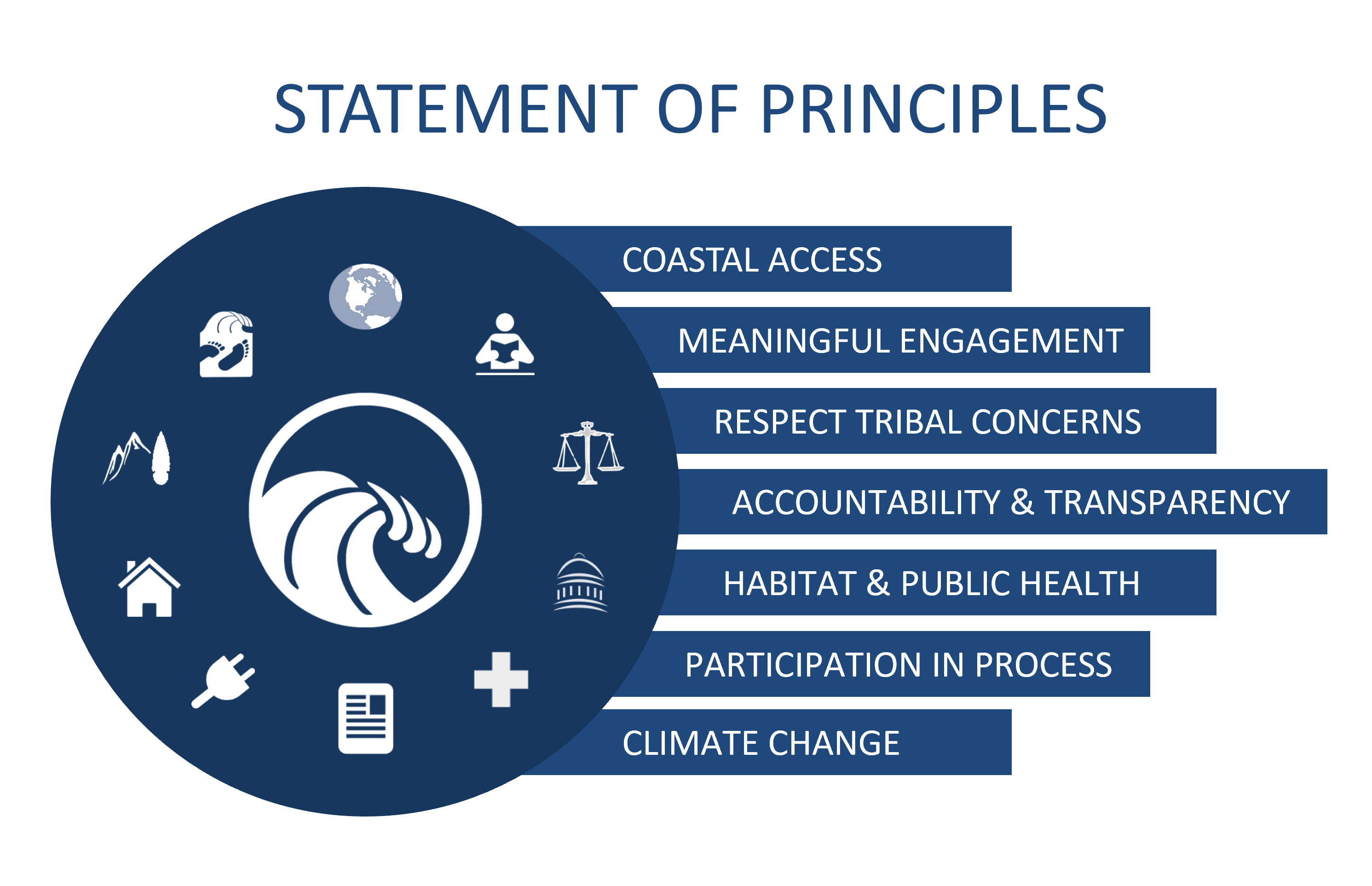
The Coastal Commission is focused on ensuring California’s coast is accessible to all Californians, regardless of their ethnicity, gender, socioeconomic status or place of residence. In order to integrate the principles of environmental, racial and social equity throughout the agency, the Commission has a three-phase approach which includes its Environmental Justice Policy, a racial equity plan, and an ongoing five-year strategic plan. The Environmental Justice Policy is the leading effort guiding the Commission’s decisions to protect coastal resources equitably.
The Environmental Justice Policy is a framework for identifying and analyzing project impacts on underserved and disadvantaged communities. The policy is designed to achieve more meaningful engagement, equitable process, effective communication and stronger coastal protection benefits for all Californians.

Governor Brown appointed Commissioner Turnbull-Sanders as the environmental justice commissioner in 2017.
In 2019, the Coastal Commission unanimously adopted its first environmental justice policy to provide guidance for Commissioners, staff, and the public on how the Commission will implement its environmental justice authority and integrate the principles of environmental justice, equality, and social equity into all aspects of the Commission’s program and operations.
For additional information about the policy adoption, read the press release or watch the recording of the Commission meeting.

The Coastal Commission adopted its Environmental Justice Policy and implementation actions in March 2019. Over the last year, the Commission has made progress on a number of actions, which are highlighted in its first Environmental Justice Year in Review for 2020 and the implementation update
In 2019, the Commission adopted its Environmental Justice Policy and committed to creating and sharing informational material about projects that can be easily understood by environmental justice communities affected by the Commission’s decisions. Towards that commitment, the Commission’s Environmental Justice Unit will create and send FAQ sheets for projects that meet at least one of the following criteria: 1) receives several questions from the public on environmental justice, 2) includes findings on environmental justice impacts, or 3) has a high level of public interest. We will send FAQ sheets for upcoming projects on the EJ listerv and post them on the Commission’s Environmental Justice webpage. To learn more about a specifc project, select from our list of FAQs below.
The Tribal Consultation Policy is a separate and distinct policy and process than the draft Environmental Justice Policy. More information about the Tribal Consultation Policy can be found here
The California Coastal Commission is developing new policy guidance on integrating the principles of environmental justice into the agency’s sea level rise adaptation work. Learn more.
Access the coast on a budget. Find out more information about lower cost lodging in the coastal zone and how the Commission protects these facilities here.
Encontrara recursos sobre varios temas que hemos traducido en español en esta página.
The California Coastal Commission incorporated principles of environmental justice into the update of a is developing new policy guidance on integrating the principles of environmental justice into the agency’s sea level rise adaptation work. Learn more about the innovative process that involved environmental justice leaders from the start here.